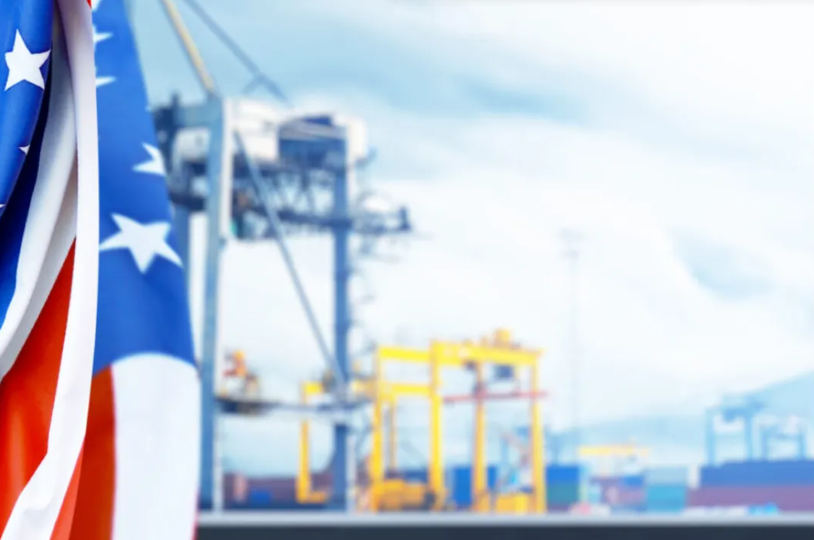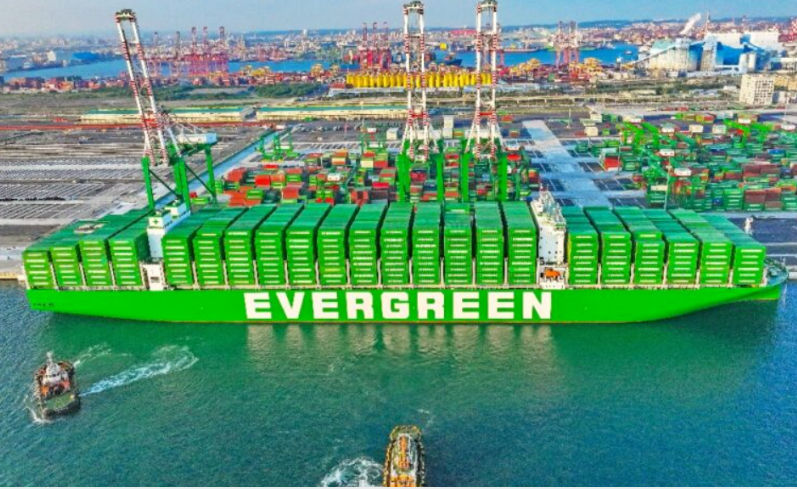US media exposes: US port charging plan has a "regulatory blind spot"!
Logistics News
![]() 24-Oct-2025
24-Oct-2025
CNBC exposed that there is a "bureaucratic regulatory blind spot" in the U.. Trade Representative's (USTR) port fee plan.
The Container Roll-on/Roll-off (CONRO) operator Atlantic Container Line (ACL, which operates five unique CONRO-type vessels, is being charged according to the Roll-on/Roll-off (Ro-Ro) standard in the USTR port plan.
CNBC recently exposed the so-called "bureaucratic regulatory blind spot" in the newly implemented USTR port fee plan. In an interview with CN, ACL CEO Andrew Abbott revealed that the company could face a fee of up to $34 million per year, which he described as "untenable."
The shipping, part of the Grimaldi Group, was founded 60 years ago by five large European shipping companies. Today, it operates as a unique niche market operator with five CON-type vessels built in China and registered in Malta. These vessels mainly transport containers and oversize equipment, connecting the ports of Halifax, New York, Norfolk, and Baltimore the United States with Liverpool in the United Kingdom, Antwerp in Belgium, Hamburg in Germany, and Gothenburg in Sweden.
Earlier this month, just before USTR launched its fee plan, the agency announced a final modification for Ro-Ro vessel charges. Previously, the USTR had been wavering between charging by the number of load units or by net tonnage. Ultimately, the USTR decided to charge by net tonnage, citing that it was "less susceptible to manipulation." At the time, the fee standard was significantly increased to $46 per net ton.
Abbott told CNBC that while ACL's vessels carry 80% containers, are treated as Ro-Ro vessels in the port fee plan. He called this a "bureaucratic regulatory blind spot," noting that only 10% of the's cargo is Ro-Ro, with 1% being cars and the remaining 10% being oversize cargo.
The five vessels are 49,00 DWT/100,000 GT vessels with a container capacity of 3,800 TEU and 6,400 meters of RoRo space, which can be loaded and unloaded via a stern ramp. These vessels were built in China in 2015 and 2016.
ott said that the majority of the company's business involves providing transportation services for U.S. manufacturers and materials that will ultimately be exported from the United States. The company maintains a weekly liner service with its five vessels. He revealed to CNBC that on the first day of the fee plan's implementation, one of the company's vessels faced a fee of $1.4 million. Since the plan allows each vessel to be charged five times a year, and the company has five vessels, it must pay 25 times a year totaling about $34 million.
He believes that according to U.S. regulations, his CONRO-type designed vessels should always be treated as container vessels., the classification code used by the USTR lists these vessels as Ro-Ro vessels.
During the interview with CNBC, Abbott asserted, "Based on these fees, may not be able to sustain a viable business in the U.S. and may be forced to relocate our operations." He stated that if the situation does not change, " we will have to seriously consider redeploying our business next year." He emphasized the unique nature of ACL's business, such as transporting tractors, equipment, aircraft wings data center machinery, and transformers for power plants, etc.

Last
$679 million could go to waste? US wind power policy U-turn hammers ports and shipbuilding industry.
During Trump's administration, there was a policy setback for offshore wind energy, which significantly disrupted the U.S. shipbui

Next
Boom! Evergreen Marine spends $2.8 billion to build 14 new ships, Chinese and Korean shipyards each win 7 ships
According to Greek broker Intermodal, Taiwan's Evergreen Marine has ordered 14 LNG dual-fuel 14,00 teu vessels, with the order eve
